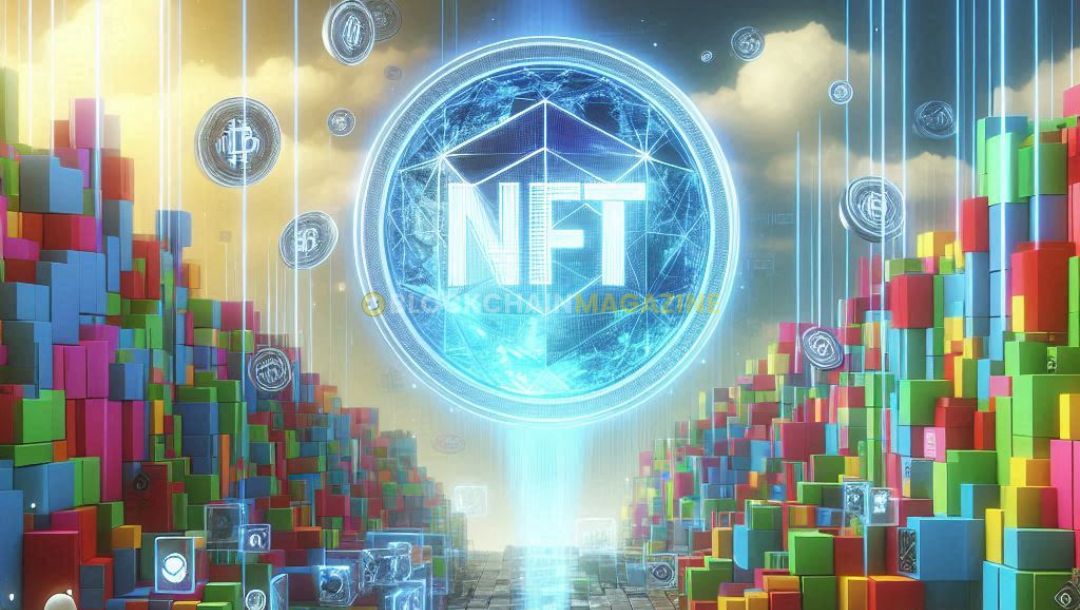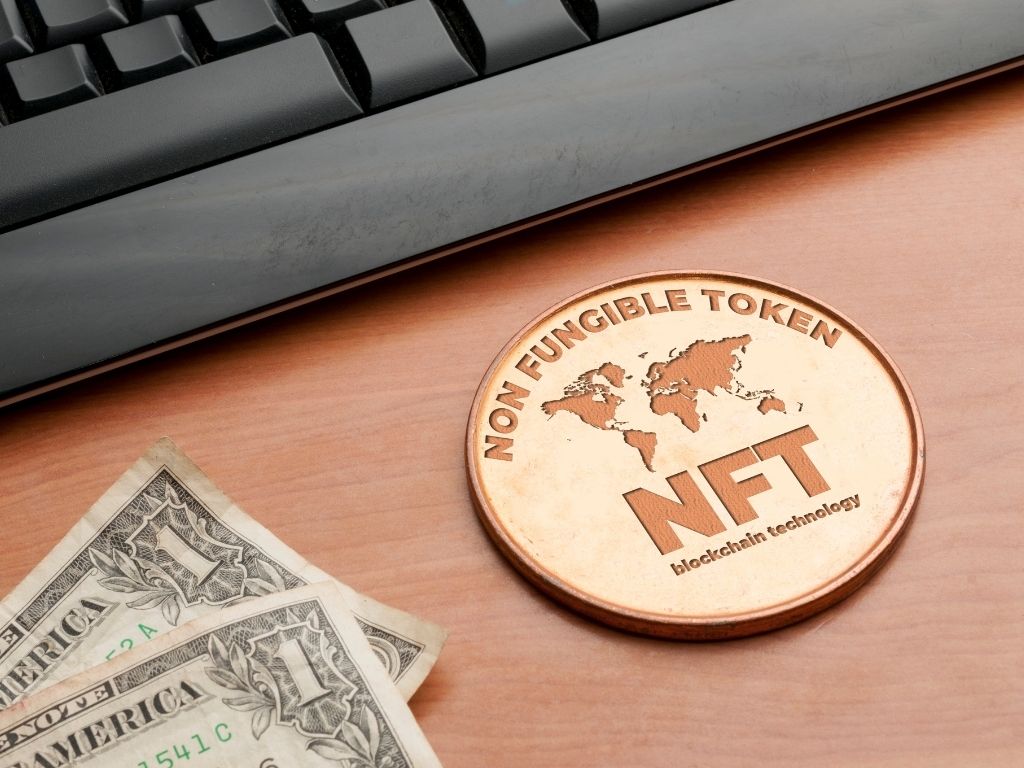Best Ways NFTs Are Revolutionizing Corporate Branding and Identity In 2024
In 2024, non-fungible tokens (NFTs) are changing the way companies think about branding and identity. These digital tokens are now more than just trendy collectibles; they are powerful tools for businesses to connect with customers, verify identities, and protect their creative work. This article explores how NFTs are making a big impact on corporate branding, identity verification, marketing, and more.
Key Takeaways
- NFTs help brands show they are real and trustworthy.
- Many companies are using NFTs in creative ways to connect with customers.
- NFTs can make it easier to prove who you are and verify jobs.
- Brands are finding new ways to use NFTs in advertising and promotions.
- NFTs are also helping protect creative work from being copied.
The Rise of NFTs in Corporate Branding
How NFTs Enhance Brand Authenticity
NFTs are changing how brands connect with their customers. By using blockchain technology, brands can prove the authenticity of their products. This transparency builds trust and helps brands stand out in a crowded market. For example, companies can create unique digital items that represent their brand, making it easier for customers to recognize and value them.
Case Studies of Successful NFT Corporate Branding Campaigns
Several brands have successfully used NFTs to boost their image:
- Nike launched NFT sneakers, allowing customers to own a piece of their brand.
- Coca-Cola created limited-edition NFTs that fans could collect.
- Gucci sold digital fashion items as NFTs, merging luxury with technology.
These campaigns show how NFTs can create excitement and engagement among consumers.
Challenges and Solutions in NFT Branding
While NFTs offer many benefits, there are challenges:
- Understanding the Technology: Many brands are still learning about NFTs and how to use them effectively.
- Environmental Concerns: The energy used in creating NFTs can be high, leading to criticism.
- Market Volatility: The value of NFTs can change quickly, making it risky for brands.
To overcome these challenges, brands can focus on education, adopt sustainable practices, and create clear strategies for their NFT initiatives.
NFTs are not just a trend; they are reshaping how brands interact with their customers and build loyalty.
In summary, NFTs are revolutionizing corporate branding by enhancing authenticity, creating unique marketing opportunities, and presenting new challenges that brands must navigate. As more companies embrace this technology, the landscape of branding will continue to evolve.
NFTs as Tools for Identity Verification
Securing Digital Identities with NFTs
NFTs provide a secure way to verify identities online. By using blockchain technology, they ensure that personal information is protected and cannot be easily altered. This is especially important in areas like banking and healthcare, where identity verification is crucial.
NFTs in Employee Verification and Credentials
Companies are now issuing employee credentials as NFTs. This means that degrees and certifications are stored securely on the blockchain, making them easy to verify. This method reduces the chances of fraud and simplifies the hiring process for employers. Here are some benefits of using NFTs for employee verification:
- Tamper-proof records
- Easy sharing of credentials
- Quick verification process
Future Trends in NFT-Based Identity Solutions
As technology evolves, we can expect more innovative uses of NFTs for identity verification. Some potential trends include:
- Wider adoption in various industries
- Integration with digital wallets
- Enhanced privacy features
NFTs are changing how we think about identity verification, making it more secure and efficient.
In summary, NFTs are not just for art; they are becoming essential tools for identity verification, ensuring that our digital identities are safe and trustworthy.
Highlights:
- Strengthened brand identity
- Transparent and secure ownership
Innovative Applications of NFTs in Marketing
NFTs in Customer Loyalty Programs
NFTs are changing how brands engage with their customers. By using NFTs, companies can create unique loyalty programs that reward customers with exclusive digital assets. These assets can include:
- Special discounts
- Early access to new products
- Unique experiences or events
This approach not only enhances customer loyalty but also creates a sense of ownership among consumers.
Exclusive NFT-Based Promotions and Rewards
Brands are now offering limited-edition NFTs as part of their promotional campaigns. These exclusive tokens can serve as:
- Collectible items that fans cherish.
- Access passes to special events.
- Digital memorabilia that can appreciate in value.
This strategy helps brands stand out in a crowded market and fosters a deeper connection with their audience.
Leveraging NFTs for Brand Engagement
NFTs provide a new way for brands to engage with their audience. They can be used to create interactive experiences that captivate consumers. For example:
- Brands can host virtual events where attendees receive NFTs as tickets.
- Companies can collaborate with artists to create unique NFT art that represents their brand.
- Businesses can use NFTs to tell their brand story in a more engaging way.
NFTs are not just a trend; they are reshaping how brands connect with their customers and create lasting impressions.
In conclusion, the innovative use of NFTs in marketing is paving the way for new strategies that enhance customer loyalty, engagement, and brand identity. As we move forward, the potential for NFTs in marketing will only continue to grow, making them a vital tool for businesses in 2024 and beyond.
The Role of NFTs in Protecting Intellectual Property
Tokenizing Intellectual Property Rights
NFTs provide a new way to protect and monetize intellectual property. By turning patents, trademarks, and copyrights into NFTs, creators can ensure their work is properly credited and can be easily traded in a transparent marketplace.
Preventing Counterfeiting with NFTs
One of the biggest challenges in protecting intellectual property is counterfeiting. NFTs help combat this by:
- Tracking ownership history transparently.
- Ensuring authenticity through unique digital signatures.
- Allowing creators to receive royalties on secondary sales.
Legal Implications of NFT-Based IP Protection
As NFTs become more common, legal frameworks are evolving. Key points include:
- Ownership disputes may arise as more people tokenize their IP.
- Current laws may need updates to address NFT-specific issues.
- Companies must navigate the complexities of licensing in a digital world.
NFTs are reshaping how we think about ownership and rights in the digital age, making it easier for creators to protect their work and earn from it.
In summary, NFTs are revolutionizing the way we protect intellectual property, offering solutions to challenges that have long plagued creators and businesses alike. The future of IP protection is here, and it’s digital!
NFTs and the Future of Virtual Real Estate
Corporate Investments in Virtual Real Estate
The concept of virtual real estate is booming, with companies investing heavily in digital spaces. These investments are reshaping how brands interact with consumers. Major platforms like Decentraland and The Sandbox allow users to buy, sell, and develop virtual land, creating a vibrant digital economy.
Branding Opportunities in the Metaverse
Brands are discovering unique ways to engage with customers in the metaverse. Here are some opportunities:
- Virtual storefronts where customers can browse and purchase products.
- Hosting exclusive events in virtual spaces to connect with fans.
- Creating immersive experiences that showcase products in innovative ways.
Case Studies of Virtual Real Estate Success
Several brands have successfully ventured into virtual real estate:
- Nike launched a virtual store in the metaverse, allowing users to try on and purchase digital sneakers.
- Gucci created a virtual garden where users can explore and interact with the brand’s history.
- Sotheby’s hosted a virtual auction for digital art, showcasing the potential of NFTs in real estate.
The future of virtual real estate is bright, as brands continue to explore innovative ways to connect with their audiences in digital spaces.
In summary, NFTs are not just about digital art; they are paving the way for a new era of virtual real estate, offering brands exciting opportunities to engage with consumers in ways never seen before.
Highlight: virtual real estate
Environmental and Ethical Considerations of NFTs
Sustainable Practices in NFT Creation
The rise of NFTs has sparked discussions about their environmental impact. Many NFTs are created on energy-intensive blockchains, leading to concerns about their sustainability. To address this, companies are exploring:
- Eco-friendly blockchain options that consume less energy.
- Carbon offset programs to balance out emissions.
- Using renewable energy sources for mining and transactions.
Addressing the Carbon Footprint of NFTs
The carbon footprint of NFTs can be significant. A recent study showed that the average NFT transaction can emit as much CO2 as driving a car for several miles. To combat this:
- Adopt greener technologies in blockchain.
- Encourage artists and brands to choose sustainable platforms.
- Implement educational campaigns to raise awareness about environmental issues.
| NFT Type | Average CO2 Emission (kg) | Energy Consumption (kWh) |
|---|---|---|
| Standard NFT | 0.5 | 100 |
| Eco-friendly NFT | 0.1 | 20 |
Ethical Issues in NFT Utilization
While NFTs offer exciting opportunities, they also raise ethical questions. Some key concerns include:
- Ownership rights: Ensuring creators are fairly compensated.
- Market manipulation: Preventing scams and wash trading.
- Accessibility: Making NFTs available to a broader audience.
NFTs have the potential to transform industries, but we must prioritize sustainability and ethics to ensure a positive impact on society.
The Integration of NFTs with Emerging Technologies
NFTs and Augmented Reality (AR)
NFTs are starting to blend with augmented reality, creating exciting new experiences. Imagine viewing a digital art piece as a 3D object in your own living room! This integration allows users to interact with NFTs in a more engaging way, making them feel more real and valuable.
Virtual Reality (VR) Experiences with NFTs
In virtual reality, NFTs can be displayed in dynamic galleries. Users can explore these spaces, interacting with digital assets like never before. This immersive experience not only enhances enjoyment but also opens up new avenues for brand engagement.
AI and Machine Learning in NFT Management
Artificial intelligence and machine learning are set to revolutionize how NFTs are managed. These technologies can help automate processes, making transactions smoother and more efficient. Here are some potential benefits:
- Faster transactions: AI can speed up the verification process.
- Better security: Machine learning can detect fraudulent activities.
- Personalized experiences: AI can tailor NFT offerings to individual preferences.
The future of NFTs is bright as they continue to merge with emerging technologies, creating new opportunities for brands and consumers alike.
Conclusion
As we look ahead, the integration of NFTs with technologies like AR, VR, and AI will likely reshape how we interact with digital assets. This evolution is not just about art; it’s about creating a more connected and engaging digital world.
Conclusion
In summary, NFTs are changing how companies think about branding and identity in 2024. These digital tokens are not just for art anymore; they are becoming essential tools for businesses. By using NFTs, brands can create unique experiences for their customers, ensuring that ownership is clear and secure. This shift allows companies to connect with their audience in new ways, making their brands more memorable. As we move forward, the role of NFTs in corporate branding will likely grow, helping businesses stand out in a crowded market.
Frequently Asked Questions
What are NFTs and how do they work?
NFTs, or Non-Fungible Tokens, are unique digital items that use blockchain technology to prove ownership. Unlike regular money or tokens, each NFT is one-of-a-kind and cannot be replaced.
How can businesses use NFTs for branding?
Businesses can use NFTs to create unique digital items that represent their brand. This helps them stand out and connect with customers in new ways.
What are some examples of successful NFT campaigns?
Many brands have launched successful NFT campaigns, like artists selling digital art or companies offering exclusive virtual items. These campaigns have helped boost brand visibility.
What challenges do companies face when using NFTs?
Companies may struggle with understanding the technology, managing costs, and ensuring their NFTs are environmentally friendly. However, many solutions are being developed to address these issues.
How can NFTs help with identity verification?
NFTs can securely store personal information, making it easier for people and businesses to verify identities without worrying about fraud.
What is the future of NFTs in marketing?
As technology advances, NFTs are expected to become more common in marketing, helping brands engage customers through unique experiences and rewards.
Stay informed with daily updates from Blockchain Magazine on Google News. Click here to follow us and mark as favorite: [Blockchain Magazine on Google News].
Get Blockchain Insights In Inbox
Stay ahead of the curve with expert analysis and market updates.
latest from tech
Disclaimer: Any post shared by a third-party agency are sponsored and Blockchain Magazine has no views on any such posts. The views and opinions expressed in this post are those of the clients and do not necessarily reflect the official policy or position of Blockchain Magazine. The information provided in this post is for informational purposes only and should not be considered as financial, investment, or professional advice. Blockchain Magazine does not endorse or promote any specific products, services, or companies mentioned in this posts. Readers are encouraged to conduct their own research and consult with a qualified professional before making any financial decisions. The featured image used is just a creative depiction of the title and it does not intend to hurt sentiments of any person or institution. If it hurts anyone sentiments, please do not hesitate to reach out to Blockchain Magazine.

 Bitcoin
Bitcoin  Ethereum
Ethereum  XRP
XRP  Tether
Tether  Solana
Solana  USDC
USDC  Dogecoin
Dogecoin  Cardano
Cardano  Lido Staked Ether
Lido Staked Ether  TRON
TRON  Chainlink
Chainlink  Wrapped Bitcoin
Wrapped Bitcoin  Wrapped stETH
Wrapped stETH  Sui
Sui  Avalanche
Avalanche  Stellar
Stellar  Hedera
Hedera  Toncoin
Toncoin  Shiba Inu
Shiba Inu  LEO Token
LEO Token  Hyperliquid
Hyperliquid  Litecoin
Litecoin  Bitget Token
Bitget Token  WETH
WETH  USDS
USDS  Polkadot
Polkadot  Bitcoin Cash
Bitcoin Cash  Ethena USDe
Ethena USDe  Wrapped eETH
Wrapped eETH  Uniswap
Uniswap  MANTRA
MANTRA  Ondo
Ondo  Pepe
Pepe  Monero
Monero  Aave
Aave  NEAR Protocol
NEAR Protocol  WhiteBIT Coin
WhiteBIT Coin  Mantle
Mantle  Official Trump
Official Trump  Aptos
Aptos  Dai
Dai  Internet Computer
Internet Computer  Ethereum Classic
Ethereum Classic  Bittensor
Bittensor  Cronos
Cronos  OKB
OKB  POL (ex-MATIC)
POL (ex-MATIC)  Gate
Gate 




